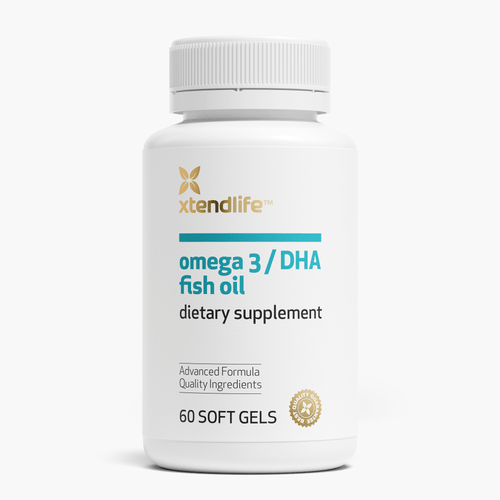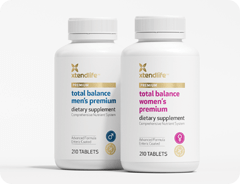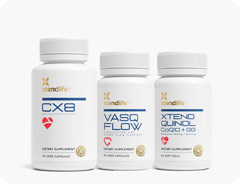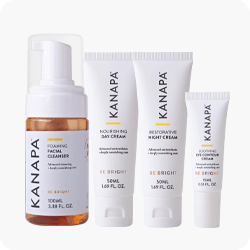In a world overflowing with nutrition advice, omega-3 fatty acids, especially EPA and DHA stand out as the best wellness nutritional superstars. These essential nutrients power every cell in our bodies, helping us perform at our best physically and mentally.
There are more than 50,000 published papers, research suggests that EPA and DHA omega-3s are helpful in supporting heart, brain and eye health throughout life, and prenatal/maternal health, including supporting a healthy pregnancy and early childhood development.
However, despite the research about omega-3s, there are still misconceptions about omega-3s around. So today, let's dive into the truth behind seven common myths about omega-3s.
Myth #1: "You can get enough Omega-3s from your diet without supplements."
Reality: In theory, it's possible - but the fact is a staggering 90% of people worldwide aren't getting adequate EPA and DHA, andmost people don't eat enough fish regularly.
To meet the minimum recommendations (250-500mg per day), you'd need to consume fatty fish like salmon or sardines at least twice a week. And it's not just any fish will do; popular food choices like tilapia and shrimp are good sources of protein and other nutrients, but not omega-3s. Hence, for most of us, a high-quality supplement such as fish oil or algal oil helps fill dietary gaps.
Myth #2: "Plant-based Omega-3s are just as good as fish oil."
Reality: Plant sources like flaxseeds and chia seeds contain ALA (alpha-linolenic acid), which your body must convert into the active EPA and DHA forms. Unfortunately, this conversion process is remarkably inefficient—often less than 10% of ALA successfully transforms into these bioactive compounds.
Marine sources provide EPA and DHA directly, making fish oil and algae oil significantly more effective for most health benefits.
Myth #3: "Krill oil is always better than fish oil."
Reality: Despite compelling marketing claims about krill oil's phospholipid structure improving absorption, there's an important catch: krill oil typically contains substantially lower concentrations of EPA and DHA per dose compared to quality fish oil supplements.
The result? You might need to take several times more krill oil (and spend considerably more money) to match the omega-3 content in a standard fish oil supplement.
Myth #4: "Omega-3s thin your blood too much and are dangerous to take daily."
Reality: While omega-3s do have mild blood-thinning effects, research consistently shows they're safe for daily consumption at recommended doses. American Heart Association (AHA) recommends about 1000 mg/day of EPA and DHA combined for people with documented heart disease, and states that this amount is safe for regular use.
Complications are rare and typically only arise when combined with prescription blood thinners—so if you're taking such medications, consult your healthcare provider before supplementation.
Myth #5: "All Omega-3 supplements are the same."
Reality: Quality matters a lot. Some supplements use poorly absorbed forms or are not properly purified, leading to issues like oxidation (making them less effective or causing a fishy aftertaste). Look for products that are sustainably sourced, third-party tested, and in triglyceride form for better absorption.
At Xtendlife, we only partner with approved suppliers when purchasing raw fish oil ingredients. Additionally, we also tightly manage the storage and distribution of all final products to ensure that freshness and quality are maintained throughout the entire process.
Myth #6: "Taking a multivitamin that lists Omega-3s is enough."
Reality: Most multivitamins contain token amounts of omega-3s — nowhere near the clinically beneficial doses shown to support heart, brain, and eye health.
For pregnant and breastfeeding women who need 700mg daily (with at least 300mg as DHA) or individuals with heart conditions requiring 1000mg daily, a dedicated omega-3 supplement is essential.
Myth #7: "If I'm taking fish oil, I'm depleting resources from the ocean."
Reality: Sustainability concerns are valid, but the fishing industry operates under strict seasonal regulations to maintain healthy marine populations. Many quality fish oil supplements are produced using "byproduct" parts of fish already harvested for food consumption, maximizing resource efficiency.
Xtendlife omega-3 fish oil products are formulated with fish oils that are certified sustainable and manufactured in modern facilities accredited to global standards. Our commitment to responsible sourcing ensures you can support your health as well as ocean conservation simultaneously.
Pure and Effective Omega-3s
Ultra-fresh and pure fish oils, packed with omega-3 essential fatty acids, support daily wellness, including heart, brain, and eye health, as well as prenatal and maternal wellbeing.
Shop now
How Much Omega-3 Do You Actually Need?
Scientific consensus provides clear guidelines for optimal daily EPA+DHA intake:
- Adult for general wellness:At least 500mg EPA+DHA per day (European Food Safety Authority, International Society for the Study of Fatty Acids and Lipids)
- Pregnant and lactating women: 700mg per day with at least 300mg as DHA (World Health Organization, American Pregnancy Association)
- People with heart conditions:1000mg per day (American Heart Association)
These recommendations are backed by thousands of clinical studies showing meaningful health benefits at these levels.
We hope busting these 7 common myths has helped you feel more confident about omega-3 and how it fits into your health journey. If you're looking for a high-quality omega-3 supplement to support your energy, vitality, and overall wellbeing, explore our carefully formulated range — including a vegan-friendly option to suit your lifestyle.


 Supplements
Supplements Superfoods
Superfoods Bundles
Bundles









